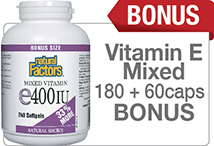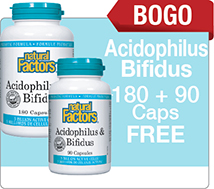IBS
Updated Oct. 31st, 2019
Irritable bowel was at one time thought to be caused solely by emotions like stress and nervousness. While these emotions can play a role in the development of IBS – as they do in many conditions, other factors such as diet, infection by harmful bacteria or parasites and food allergies play a larger role when someone develops this frustrating illness.
This common condition is the number one reason for a family physician to refer to a specialist. The reason for this is because irritable bowel symptoms mimic those of inflammatory bowel conditions like Crohn’s disease and ulcerative colitis. IBS does not make visible lesions in the bowel. The causes of irritable bowel are an overgrowth of harmful microbes, poor diet, emotions and food sensitivities. The bowel reacts to these irritants with strong intestinal contractions.
Symptoms of IBS are nausea, spastic diarrhea, episodes of constipation, pain, bloating, belching and flatulence. The stool can be mixed with mucus. Stress and anxiety can trigger attacks.
IBS is conventionally treated with antispasmodics, anti-diarrheals antidepressants and tranquilizers. There are many side effects to these medications and they can cause dependency. They do not cure IBS; rather they only stop the symptoms. Drugs such as antibiotics, corticosteroids, cholestyramine and sulfasalazine aggravate malabsorption in IBS patients.
Natural treatment of IBS involves: treating the underlying microbial imbalance in the intestines, ensuring adequate fibre intake, enhancing the health of the intestinal lining, and the elimination of potentially allergenic foods.
Underlying microbial infection by parasites, candida, or harmful bacteria must be treated if a recovery from IBS is to be made successfully without constant recurrence.
Stool testing for parasites, yeast and other microbes should be performed and appropriate herbal remedies can be administered. If you and your practitioner suspect parasites, then a combination of wormwood, cloves and green hull black walnut extracts can fight parasites in each of their life cycle stages.
Acidophilus is crucial to restoring a healthy balance of friendly bacteria in the gut. You can use a combination of caprylic acid, bentonite, and psyllium along with acidophilus to fight candida.
One species of Bifidobacteria (B. infantis) has also been found to relieve many of the symptoms of IBS. A number of multi-strain probiotic supplements will include this strain.
You can also consider Bioxy Cleanse, oregano oil and grapefruit seed extract as they will help fight most types of pathogenic organisms that can affect the gut.
Fibre intake is crucial to recovery from IBS. It helps to cleanse toxins from both the large and small intestines that can cause both irritation and create an environment in which parasites and candida proliferate. It also provides sufficient bulk to reduce the cramping which causes much of the pain. Use psyllium fibre powder; it is effective and tolerated well by most people. Ensure that you drink an extra glass of pure water after each dose, as this will improve its effectiveness. If you are gluten intolerant, use a gluten free fibre like apple pectin, grapefruit pectin, flax meal, or a rice based fibre supplement.
The intestinal lining can be affected negatively by IBS, which in turn can cause further irritation, poor absorption of nutrients, leaky gut and the aggravation of food allergies. Use DGL (deglycerhizinated licorice) lozenges and aloe vera juice to reduce irritation during a flare up. Glutamine, colostrum, and NAG can be used to strengthen the intestinal lining along with a good quality, therapeutic strength acidophilus supplement.
Food sensitivities should be assessed. Elimination and rotation diets can be used for treatment. Pay close attention to what foods cause more irritation than others. Many people find that keeping a log of this information helps them identify and eliminate allergenic foods from their diet. Since leaky gut can play a role in aggravating food allergies, follow the same protocol above for improving the health of your intestinal lining. See the table below for specific dosages.
The most important dietary enhancement for IBS is increasing dietary fibre. Do this by eating lots of vegetables, fruits and legumes. Use ground flax seed, psyllium and oat bran as daily fibre sources. Do not use wheat bran, which tends to be allergenic. Consume fermented products like yogurt, kefir, quark, buttermilk and natural cheeses to replenish the friendly bacteria that assist with nutrient digestion.
Do not use the following foods because they irritate the intestine; unfermented dairy products, wheat, animal fat, caffeine, carbonated drinks, chocolate, candy, processed food, additives, preservatives, citrus fruits, spices and sugar-free foods.
Drink lots of filtered water to balance fluid losses due to diarrhea. To counteract stress do regular exercise and deep breathing exercises. Undergo counselling to deal with emotional triggers. Take time to enjoy your foods, chew well and eat in a comfortable environment. Use a hot pack over the abdomen to provide more blood to the digestive organs.























All these tips are great. I have had great results from slippery elm and wheatgrass juice powder which I have bought from this site for a family member. Slippery elm helped but the the wheatgrass juice powder made a big difference in his digestion. I highly recommend it. Our digestive health is linked to so many other things, so it's important that it's in optimal health.
Hello Hassan,
Digestive health is very important and a key component to overall well-being. We're glad you enjoyed the tips in our article and have found supplements to support this concern. Both are great for gut support, as is Glutamine and probiotics to repair the gut.
You can learn more about those supplements here:
https://www.nationalnutrition.ca/articles/supplements/glutamine/
Stay healthy & well!